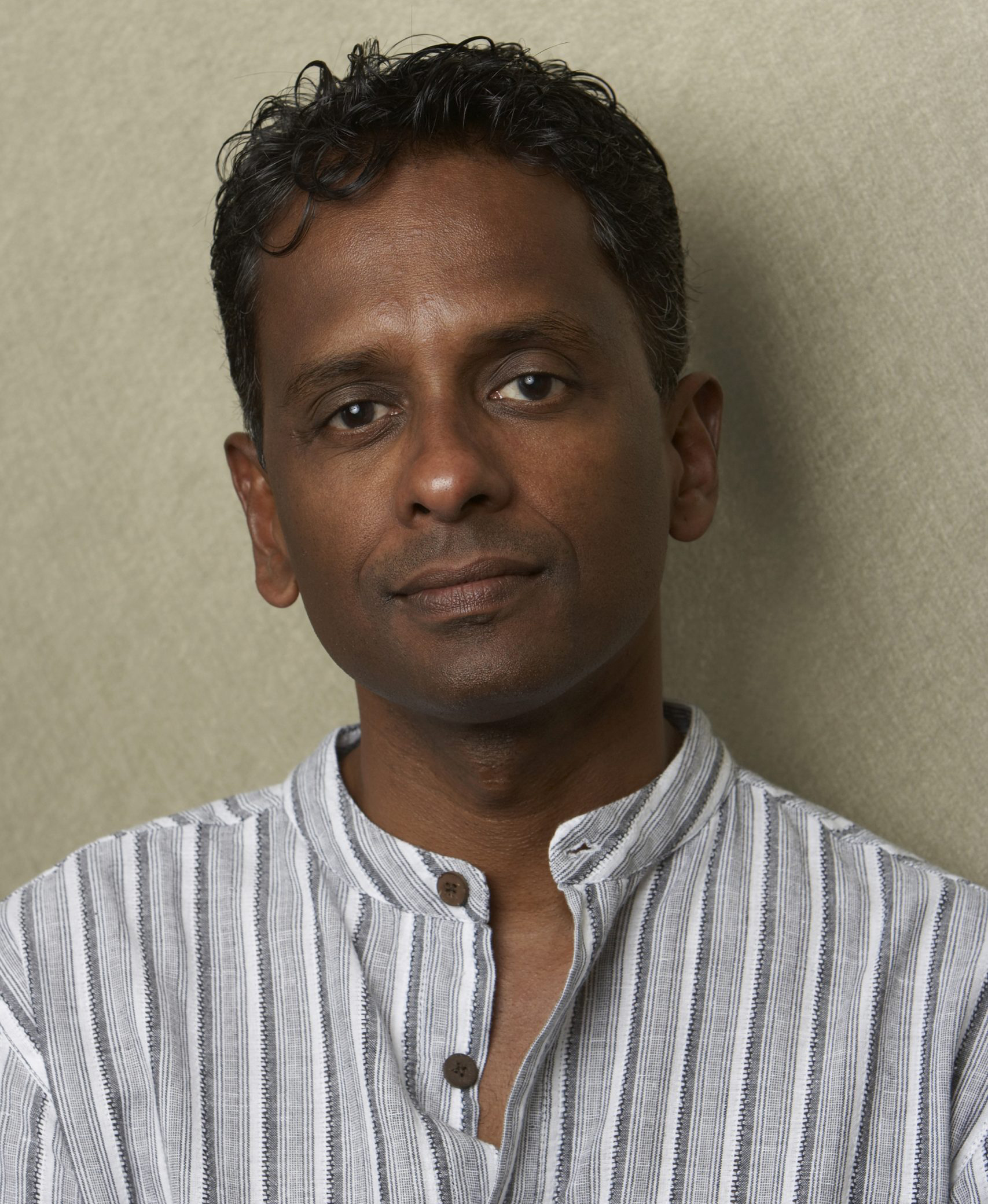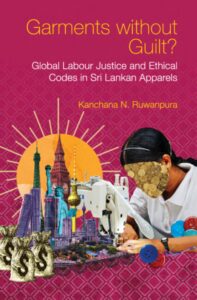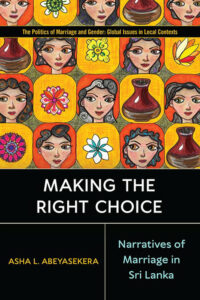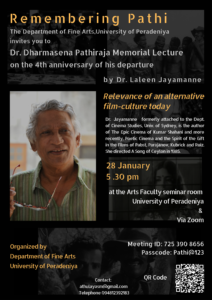
This conversation was part of a panel discussion on Imaginative Geographies: The Place of Sri Lanka in Contemporary Sri Lankan Writing in English, featured at the virtual festival on Imaginative Geographies organised by the Institute of Advanced Studies, University College, London (UCL) on 5 May 2021. The panel was co-hosted by the Department of English, University of Colombo, and the Centre for the Study of South Asia and the Indian Ocean World at UCL. Three themed conversations took place on the panel, on ‘Mapping and Routes’, ‘Translation and Poetics’, and ‘Diaspora and Exile’. This is an edited transcript of the conversation between Shyam Selvadurai and Neloufer de Mel which explored the theme of ‘Diaspora and Exile’.
Neloufer de Mel: Welcome Shyam [Selvadurai], to this panel and segment on ‘Diaspora and Exile’. I think the conversation will continue what began with Shermal [Wijewardene] and Ameena [Hussein] talking about geographies, maps, and travel; and with Ruhani [Perera], [Packiyanathan] Ahilan and Kanchuka [Dharmasiri] talking about memory and translation, absences and presences. I want to begin by saying that diaspora and exile have often been used interchangeably, but a distinction has also been made, which is a distinction of scale, really – with diaspora referring to whole groups of people, and exile as a more personalised, intimate state of being. Historically, both terms have been associated with geography, place, attachment, and loss. I’m curious as to how you feel your novels engage with both these terms – that is, ‘diaspora’ and ‘exile’.
Shyam Selvadurai: For me they don’t feel different. I think diaspora is a condition, and exile is a feeling. I’m a novelist, so the first thing I’m interested in is form, and language, and story, and how my experience may translate into an artistic form. So, obviously I’m dealing with the issue of being in exile both within yourself and also outside yourself, from your country. I don’t really think about it that much when I am writing. It’s just that what I try to do is exist within the context of the character. Personally, I don’t consider myself diasporic anymore. I think the term that suits me is a ‘two-worlder’. Somebody who is equally comfortable in both Sri Lanka and Toronto. So, I don’t feel that sense of disconnection and also of discomfort. [The] feeling of discomfort is a big part of what constitutes being in exile or being diasporic. When you return to the homeland you don’t fit in; [and] you don’t fit in, in a new country. I don’t really experience either. But I haven’t quite written about that yet, and I think it’s just that I don’t know how to, but it really interests me as a subject because I think there are quite a few people like myself who are two-worlders. I literally have two phones, you know, so when I get off the airport in Sri Lanka, I turn on my Sri Lankan phone and call the cab company and say ‘Can I have a cab?’, and this language, Sinhala, that has remained buried and which I simply cannot use in Toronto, [and] just would not come up to my tongue, now suddenly just flows out as if I have been speaking it all along. So, there is a very mature sort of a sense of being comfortable in both places, but also, I suppose, because I’ve gained that sense of not being comfortable in any place since I was about five, [this] has always been also a part of who I am, I suppose.
NdeM: That leads perfectly to my next question. Let me approach this through another route, which is about your characters. Edward Said, whom we invoke in this panel on ‘imaginative geographies’, said in his Reith Lectures that an exile, particularly the intellectual and artistic exile, is someone in between; restless, suspended, and out of place (Said, (1994): 35-62). As we know Said’s own autobiography is titled Out of Place. This in-betweenness can refer, as you said, to someone who toggles between two places fairly comfortably, but it can also be about someone who is in one place and yet feels outside of it. Many of your characters do not fit in. So my question is this: what is the work being out of place does, in your novels?
SS: It’s a perfect place to be as a novelist, and I think novelists even living within their place, like say Jane Austen, are also out of place, by, in her case, [being] a ‘spinster’. I think that what it does, is it gives you a sense of distance as a writer. It gives you that sort of separation that you need from the world that you are trying to describe. It used to be important when I was first writing, to actually have that physical separation from Sri Lanka. Now I don’t need it anymore. I can just be sitting in my flat in Sri Lanka and feel as removed from Sri Lanka as [if] I am writing about it from Toronto. I think that’s an important condition of being a writer. I think I’ve lost it though, that’s my problem. That’s why I can’t write about contemporary Sri Lanka—I don’t really have that separation from it anymore. I actually envy those diasporic writers, who sort of fly in, do their research and their project, and go off. I think they actually have a better sense of distance.
NdeM: I’m wondering whether the sort of conundrum you are talking about has something to do with the fact that you deal with the micro unit. When I think about your novels, a place, or cities, or countries are often constructed in your stories through the family. Because it is the family, whether they are in Colombo or Toronto, it is through the family that you map a place both materially and imaginatively. The family draws the boundaries within which your main characters have to negotiate or break out from, and the family becomes the site of rituals and violence – particularly when it comes to sexuality. Why family? Does family offer you a particular aesthetic and figurative advantage when you write a story?
SS: Firstly, family, because culturally we are socialised within a family structure and within an extended family culture. So that’s just natural. I mean, that’s a natural part of being Sri Lankan for me, being a part of the family. It has also provided, artistically, a great advantage, because you can have a small world, and yet you can have a number of perspectives, and not lose characters in a way [that could happen] if you had tried to do a much larger canvas. So that small canvas is always easier for me to write. What happens within that microcosm reflects the bigger picture, or the bigger picture enters, or is viewed through this smaller world. So, I think that family, to me, is quite a natural thing but also a great artistic possibility.
NdeM: I also think that it’s through the family and what happens to the family that you chart a connection between where that family is located and the past. But unlike the home, which, in novels like Cinnamon Gardens or The Hungry Ghosts you describe in thick detail, giving a very detailed materiality of place with specific roads, architectures, neighbourhoods, etc., the past is fluid and travels because it lives in the memory of your characters. The past travels with your characters wherever they go. I’m curious as to the connection you see between this fixity of place and the fluidity of the past and what this brings to your creative project. What does playing with that fixity and fluidity bring to your artistic practice?
SS: In my novels so far, the fluidity of the past is not an issue because I think if you are writing about the fluidity of the past, what you’ve got to do is interrogate the memories. So, my novels only interrogate the memories; I mean in the sense that the characters remember in a fairly consistent manner. There are no two conflicting memories of an incident or something like that. What interests me about fixing a place is that it does many things. Firstly, it makes a novel more interesting. I love those novels that take you into a very specific place. It makes me feel less panicked as a writer, to sort of figure out the room. I mean, when I know what the house is, I know I have the novel. And that’s very important. I have to figure out the novel before the novel can come to life. I think, in terms of Sri Lanka, the idea of the specificity of the place is trying to mark something that is passing or that has passed. In terms of my descriptions of Canada, it is kind of planting my flag and saying “Yes, I am also here. This is also my territory”.
NdeM: You said you get anxious when you haven’t gotten the place quite right. Your latest novel, which is in press, is titled Mansions of the Moon and is about Yashodhara, the wife of Lord Buddha. Presumably, it is set in India. So how do you deal with a place that you may not be that familiar with, and how do you achieve a poetics of space in that situation?
SS: It’s funny to have to write a novel set in 600 BC India. I couldn’t see the novel till I saw the house. This wonderful academic showed me where to see the house and then sent me to Nepal. And the moment I could see the house and the courtyard, I could see the women sitting in it. And then suddenly there it was, and there she was, coming into it. So, it is very much the same, it’s very fascinating to see the lineage of the characters.
NedeM: I can’t wait to read this latest novel of yours, and you’ve already given us a clue as to its map, and how to see where the characters are as they go along. So, my last question to you Shyam is on Funny Boy. Lots of people have seen the film. There have been lots of debates and views about it, certainly in Sri Lanka. My question to you is, again, about the politics of place. The novel ends with the 1983 pogrom and the destruction of Arjie’s house; the house is obscured by a monsoonal downpour – everything seems lost. The film ends with a scene which is an addition —it’s not there in the novel, it’s something that you co-wrote with Deepa Mehta. It is about Arjie and his family arriving at the airport in Canada, and there is a hopefulness to it. He reconnects with his most favourite relative Radha Aunty. Radha herself is free from an awful arranged marriage. There is a sense in which Arjie possibly may not be out of place in Canada. Were you aware of the politics of place when you decided to add that scene in, and how did you negotiate that?
SS: Yes. I wrote that scene; it was my idea. The novel starts with Arjie saying that they are already in exile and how Canada is their new home. So, I did kind of want to end in this new place. It’s a very complicated ending because we’re not in Summer, we’re not in Fall, we’re not in Spring, we’re in the dead of Winter and it’s dead and grim, and the shot [focuses] on their feet, particularly the mother’s feet. And you already see she is wearing slippers and it is covered in snow and then it moves up and you see the parents and the family and the father with that very poignant briefcase of his, and so you know the family is going to have a real struggle. They actually aren’t even dressed properly for the country. And then the father arrives, and there is a moment of hope. So, I think that there is a kind of mixed feeling there that the parents will not have an easy life at all. Arjie might have freedom – will have the freedom to be gay – but well, if anybody who has experienced that and has lived through that will know that Arjie will go through all sorts of things. He will experience racism, poverty, the struggle to survive, incredible homesickness, and PTSD. Those characters will suffer from PTSD, for sure. They have lost everything. So, to me it felt like a very inflected end; it’s not like they came to a glorious Summer scape of Canada.
NdeM: Yes, it’s very clear that the family is going to find difficulty adjusting. But it’s also probably about Arjie’s age. He’s much younger than the others when he comes to Canada. Do you feel Shivan Rasaiah in The Hungry Ghosts, is a kind of older Arjie that you just spoke about?
SS: Yes. It’s oddly the writer of The Hungry Ghosts who is writing that scene, isn’t it?
NdeM: [laughs] Okay, I end there. It’s been wonderful to talk to you.
SS: Thank you.
Shyam Selvadurai is a writer, editor, and former curator of the Galle Literary Festival. He wrote the screenplay for his first novel Funny Boy with Deepa Mehta who also directed the film. His latest novel Mansion of the Moon, is forthcoming from Knopf in New York in 2022.
Neloufer de Mel is Senior Professor of English at the Department of English in the University of Colombo. Her teaching and research are in the areas of cultural, postcolonial, gender, and performative studies. She is the Chair of the Gratiaen Trust, founded by Michael Ondaatje.
The full IAS panel discussion may be viewed at https://www.ucl.ac.uk/institute-of-advanced-studies/events/2021/may/virtual-ias-festival-imaginative-geographies
References
Said, E. (1994). Representations of the Intellectual. New York: Vintage.



